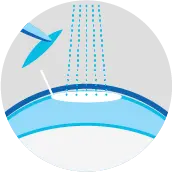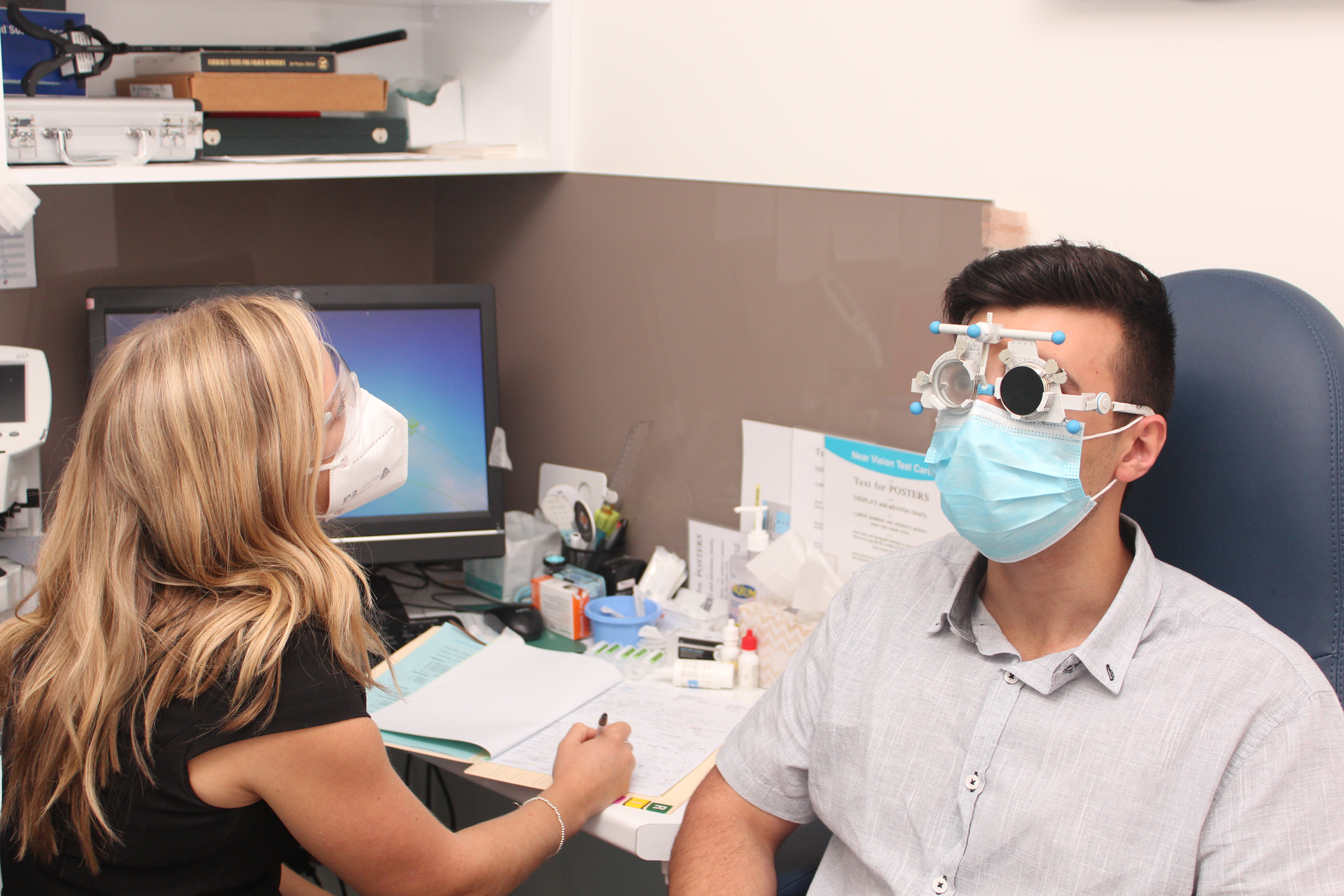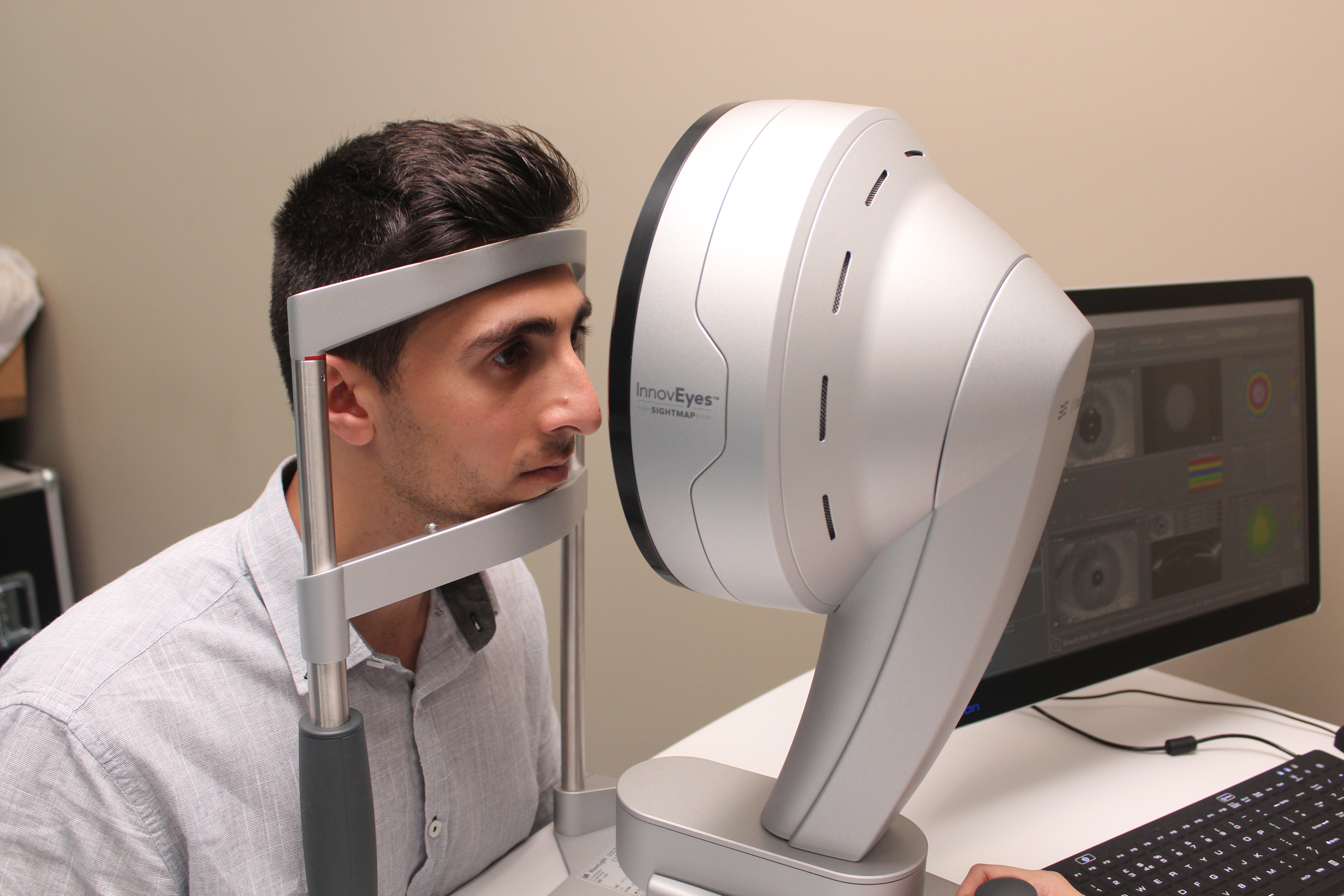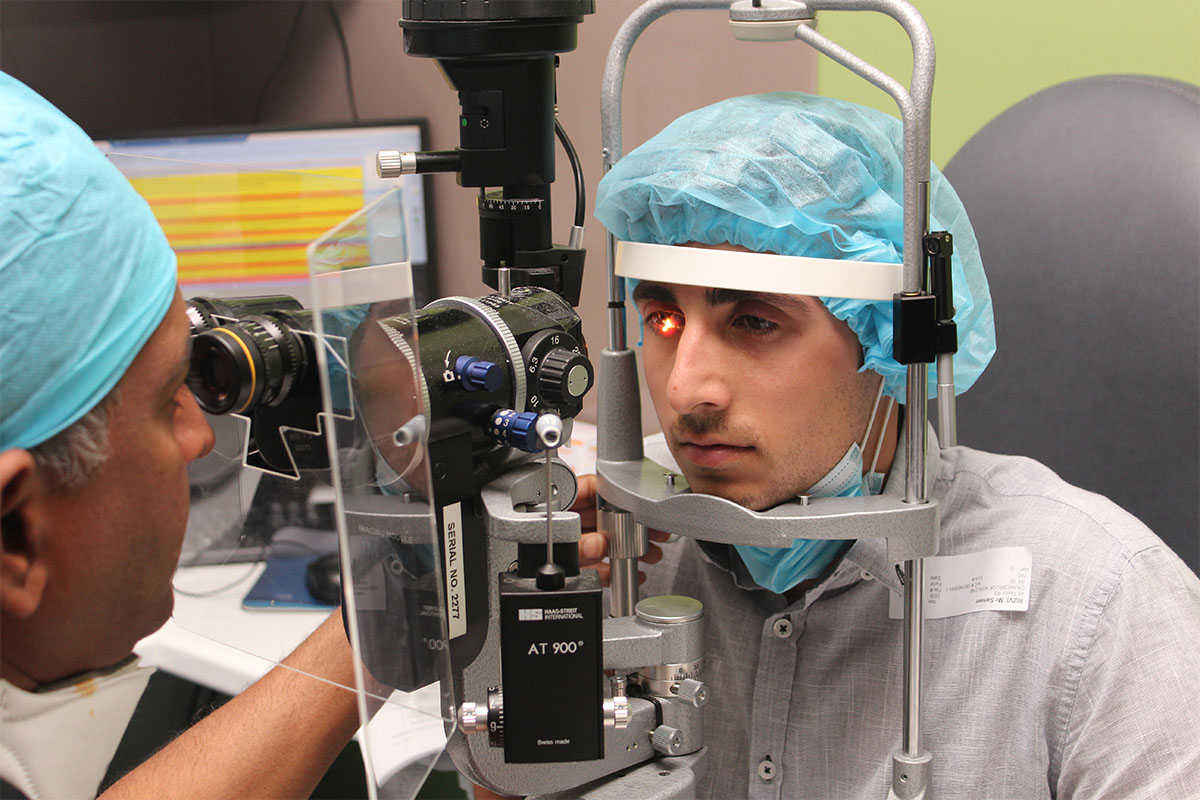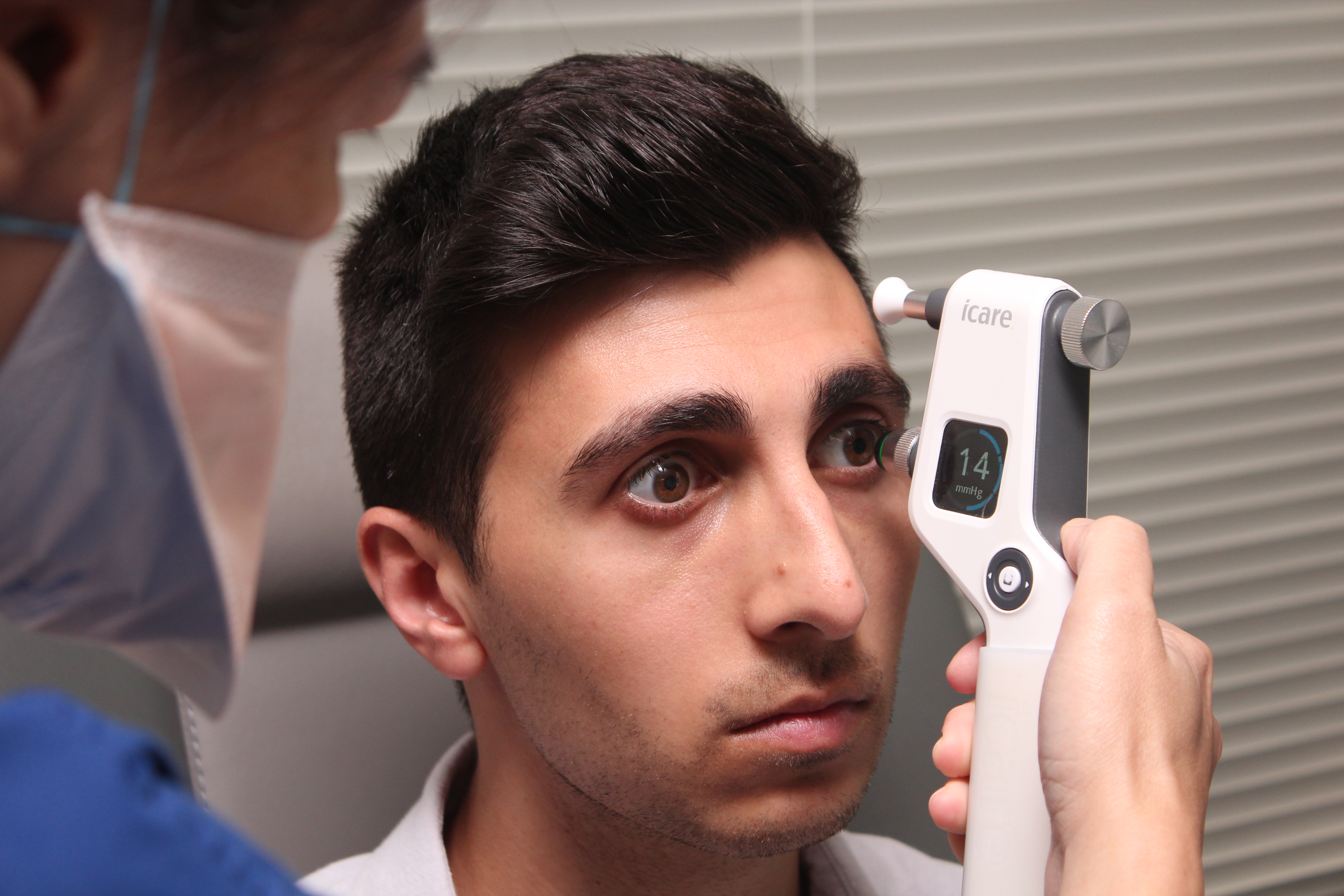When it comes to eye surgery, LASIK procedures are by far the most popular and suggested option. Lasik eye surgery is ideal for correcting a wide variety of conditions such as blurred vision, double vision, nearsightedness, farsightedness, and even astigmatisms....
LASIK is an acronym for laser-assisted in-situ keratomileusis and is one of the many vision correction procedures that are regularly accessible today. During an eye surgery LASIK procedure, a skilled LASIK surgeon reshapes your cornea. The cornea is the clear front part of your eye. Reshaping the cornea during LASIK surgery allows light to focus properly on your retina, which can enhance and clear up blurred vision with amazing results.
LASIK eye surgery is fit for a variety of conditions and can reduce the need for reading glasses or contact lenses. If you've had issues with your vision, it may be a great idea to ask your doctor if eye surgery, LASIK procedures, or laser eye surgery is the right option for you.
Who Can Get LASIK Eye Surgery?
Eye surgery, LASIK, and laser surgical procedures are ideal for anyone struggling with vision issues. They are a great way to correct blurry vision, myopia, and reduce the need for glasses or contact lenses. However, not everyone is eligible for these procedures, and it's highly encouraged to contact your doctor or eye doctor when deciding between the different eye procedures.
Eye surgery LASIK procedures are not ideal for;
- People under 18 years of age
- Pregnant and nursing women
- Those with eye conditions and eye disease like glaucoma
- People with other health issues such as diabetes, rheumatoid arthritis, and lupus
- Those with thin and uneven corneas
- Those with unpredictable vision prescriptions that undergo constant change
What is LASIK Surgery Good For?
LASIK eye surgery is beneficial for many different people and conditions. When you undergo LASIK surgery, an eye surgeon uses a femtosecond laser to make a precise incision on the corneal flap to improve your vision.
Eye surgery and LASIK treatment are ideal for people who struggle with;
Myopia
Also known as nearsightedness or shortsightedness, myopia is one of the most common eye conditions out there and can be treated by laser vision correction and LASIK eye surgery. Myopia occurs for a variety of reasons, such as one's eyeball being too long or a curved retina, which causes light rays to focus near the retina, blurring your distant vision.
Hyperopia
Hyperopia is the opposite of myopia and is more commonly known as farsightedness or long-sightedness. This can occur if your eyeball is too short, so the light will focus behind the retina, which can cause vision problems. If you suffer from hyperopia, distant objects may seem clear and closer objects will seem blurred.
Astigmatism
Astigmatisms occur when a person has a curved or unevenly flattened cornea. Astigmatism can disrupt your regular vision and cause either long-sightedness or short-sightedness. For improved vision, patients need to undergo uneven tissue removal to flatten the cornea.
What Happens During LASIK Surgery?
During a standard eye surgery LASIK procedure, your eye doctor will give you topical anesthetic eye drops to numb your eyes. If you want, you can also request a sedative. From there, PersonalEYES doctors will use a femtosecond laser to make an incision on your eye, creating a corneal flap. From there, an excimer laser is used to reshape your cornea to allow light to focus on the retina. After the incision is made, they will then peel back the layer and use another laser to reshape the surface of your eye.
After they've reshaped and removed uneven tissue, the laser treatment and refractive surgery are almost complete. All doctors have to do next is put the thin flap back in place and tell you what to do to facilitate the healing process.
Typically, eye surgery LASIK procedures only last about 20 minutes. This is an outpatient procedure, but you will have to ask somebody else to drive you home afterwards.
The Healing Process After LASIK Eye Surgery
Eye surgery LASIK procedures don't take too long. They are outpatient procedures, so you will be in and out of the clinic on the same day. Here is what to expect during the healing process;
Immediately After the Treatment
Right after your eye surgery LASIK treatment, you will experience blurry vision. All our patients who undergo the procedure experience this. So, while you will be able to leave shortly after your surgery, you will suffer from slight vision loss, so you will need someone to drive you home.
After a few hours, you will proceed to feel better, however, we recommend staying away from the TV and computer as that can strain your eyes. The best practice after eye surgery LASIK procedures is to take a nap and spend the entire day resting.
The day after your surgery, your doctor will ask you to come over for a follow-up appointment. This is a simple checkup to see how your eyes are responding to the surgery. The doctor checks your eye movements, corneal thickness, and other parameters to ensure everything is alright.
After the second appointment, most of our patients will be cleared to go back to work. Learn about Cataract surgery.
Short Recovery Process
One of the biggest benefits of LASIK surgery is a speedy recovery. The day after LASIK surgery, you will immediately begin feeling the results. After your surgery, your doctor will schedule a follow-up appointment to check on your condition, after which you will be allowed to return to work.
At PersonalEYES, our costs are all-inclusive, meaning you won’t have to pay any extra fees for follow-up appointments. In the weeks after your surgery, you will notice your vision start to improve even more, reducing the need for you to wear glasses and contact lenses. And once you feel comfortable enough, you can say goodbye to glasses and contact lenses permanently.
General Tips for Post LASIK Surgery Recovery
When you finish your eye surgery LASIK procedure, we highly recommend following these guidelines while healing;
- No contact sports and other heavy activities
- No swimming
- Avoid applying pressure to your eyes after surgery
- Wear the protective eye patch or shield for as long as the doctor recommends
Are There Risks Involved With LASIK Surgery?
Just like with any procedure, there are some risks involved when you undergo eye surgery, LASIK, and other laser-assisted eye operations. With that said, these risks are fairly rare but still need to be taken into account nonetheless. Here are some risks that are associated with LASIK surgery;
- In some rare cases, LASIK surgery can permanently damage your vision. However, if you choose qualified doctors such as the ones at PersonalEYES, this risk is significantly reduced
- Many insurance plans don't cover LASIK refractive surgery and laser vision correction
- There are rare occurrences where you may lose your best correctable vision that you get from wearing contact lenses and glasses
Is LASIK Surgery the Right Choice for Me?
While eye surgery, LASIK, and other types of laser refractive surgery are great options for those with vision issues, these procedures are not ideal for some patients. To check if you're a suitable candidate for eye surgery, LASIK, and other types of laser eye surgery, you can head to the PeronalEYES office in Canberra and all around NSW for a consultation.
During the consultation, our skilled doctors will ask you questions and examine your eyes to see if these are the right types of procedures for you.
Types of Laser Eye Surgery
When it comes to the types of eye surgery, LASIK isn't your only option. There are many different laser eye surgery procedures out there that can benefit a lot of people. The common factor and characteristic shared by these procedures are that they use a laser beam at some point in the surgery.
Here are some of the most common types of laser eye surgery available today;
LASIK
The most common eye surgery, LASIK, stands for Laser-assisted In-situ Keratomileusis. This is procedure is used for a wide variety of different conditions, which is why it's the most popular option for patients today. During eye surgery LASIK procedures, a small incision is made on your eye by a femtosecond laser or. From there, an excimer laser is used to create a corneal flap that creates an even surface on the cornea. The corneal flap is then put back in place, and the surgery is complete.
PRK
PRK stands for Photorefractive Keratectomy. Instead of forming a corneal flap, this process involves completely shaving away the top surface or epithelium of your eye. After the surgery, you may experience corneal pain and blurred vision for a couple of days.
For those suffering from a refractive error, PRK can be a great way to correct the natural shape of your cornea. However, in this day and age, many patients prefer the other treatments available as they pose fewer risks than PRK.
SMILE
This is one of the newer procedures out there and also involves reshaping the cornea with lasers. This can greatly reduce the need for contact lenses and glasses and are ideal for those with contact lenses. Since it's a newer surgery, it tends to be more expensive compared to standard laser eye surgery costs, but can still be a great option for many patients with refractive errors and vision problems.
Choose PersonalEyes For Your Eye Surgery, LASIK Procedures, and More
At PersonalEYES, our doctors are trained and dedicated to helping you attain the correct vision. Whether you are done wearing corrective lenses, are tired of dealing with near vision and corneal flap problems, or you feel a slight pressure on your eyes, we are the right choice for you.
We have offices in Canberra and all over NSW to help improve your eye health. PersonalEYES offers a wide variety of treatments that can improve your general health and finally give you a clear vision. For a free assessment, head on over to our offices at your nearest convenience.
Benefits of LASIK Eye Surgery
For most people deciding on the right eye surgery, LASIK is the best option for most people. Most doctors recommend LASIK because it's convenient, low-risk, and is an outpatient procedure that will have you going home on the same day of the surgery. It can eliminate the need for a contact lens and is great at correcting a bunch of issues like a refractive error. Here are some of the key benefits of getting eye surgery, LASIK, or other laser eye treatments.
Corrects Vision
The biggest advantage of LASIK eye surgery is that it can correct a wide range of vision issues. Almost all patients that receive LASIK surgery have reported that they have achieved their ideal vision once they have gone through the entire healing process. This procedure involves using a laser to correct your cornea, making it much easier for you to see things clearly.
Painless Procedure
If you are worried about a painful surgery, you might want to ask your eye surgeon about LASIK. During LASIK, the eye drops that the doctor gives you will numb your eyes, making for a painless procedure. On top of that, the excimer laser exerts a cool ultraviolet light beam that can correct your vision without hurting or damaging your eyes. And if you aren't comfortable staying awake during the procedure to correct near vision or other vision problems, then you can always request to be sedated for the surgery.
Eye Surgery LASIK Procedures Work Fast
Eye surgery, LASIK, and other laser procedures are known for working fast. Aside from the fact that it only takes around 20 minutes for the surgery to be completed, patients report results after just a couple of days!
Keep in mind that while your vision might improve just a couple of days after your cornea surgery, LASIK healing is a long process. For the best results, wait for a couple of months for your eyes to fully heal and reap the benefits of improved vision!

